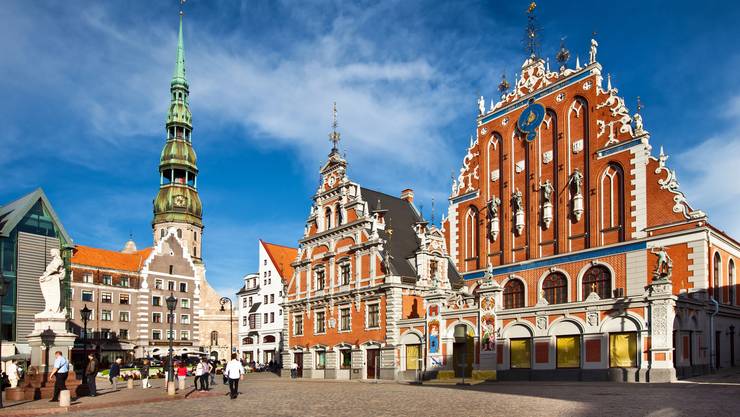
noun
- a seaport in and the capital of Latvia, on the Gulf of Riga.
- Gulf of, an arm of the Baltic between Latvia and Estonia. 90 miles (145 km) long.
noun
- a republic in N Europe, on the Baltic, S of Estonia, an independent state 1918–40; annexed by the Soviet Union 1940; regained independence 1991. 25,395 sq. mi. (63,700 sq. km). Capital: Riga.
noun
- the capital of Latvia, on the Gulf of Riga at the mouth of the Western Dvina on the Baltic Sea: a port and major trading centre since Viking times. Pop: 739 232 (2002 est)
noun
- a republic in NE Europe, on the Gulf of Riga and the Baltic Sea: ruled by Poland, Sweden, and Russia since the 13th century, Latvia was independent from 1919 until 1940 and was a Soviet republic (1940–91), gaining its independence after conflict with Soviet forces; it joined the EU in 2004. Latvia is mostly forested. Official language: Latvian. Religion: nonreligious, Christian. Currency: lats. Capital: Riga. Pop: 2 178 443 (2013 est). Area: 63 700 sq km (25 590 sq miles)
Baltic nation, independent from 1918, named for its inhabitants, Latvian Latvji, whose ancient name is of unknown origin. In English, the people name was Lett. Parts of the modern state were known previously as Livonia (from Estonian liiv “sand”) and Courland (from Curonians, name of a Lettish people, of unknown origin).
Republic on the Baltic Sea, bordered by Estonia to the north, Russia to the east, Belarus to the southeast, and Lithuania to the south. Its capital and largest city is Riga.
 Liberal Dictionary English Dictionary
Liberal Dictionary English Dictionary